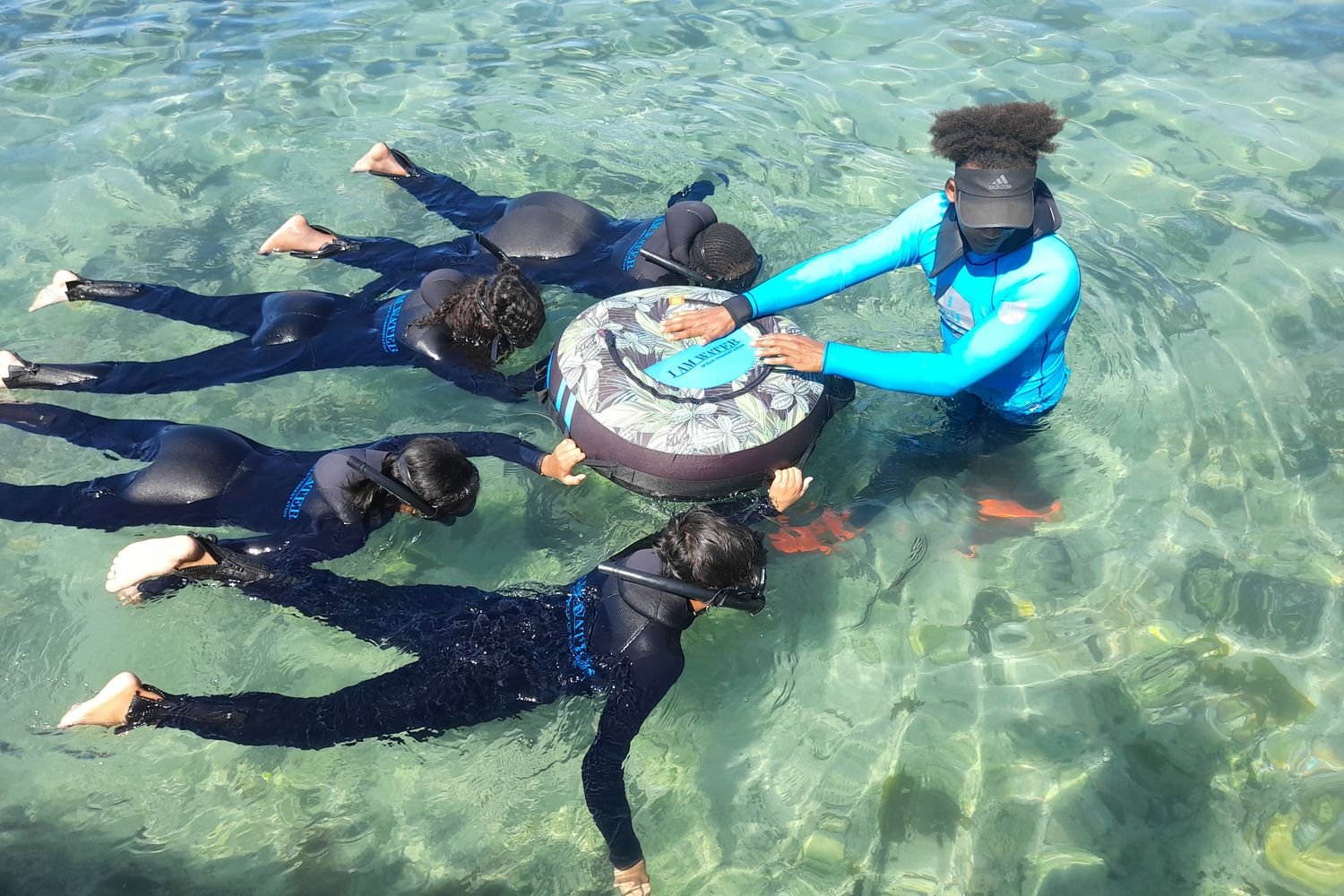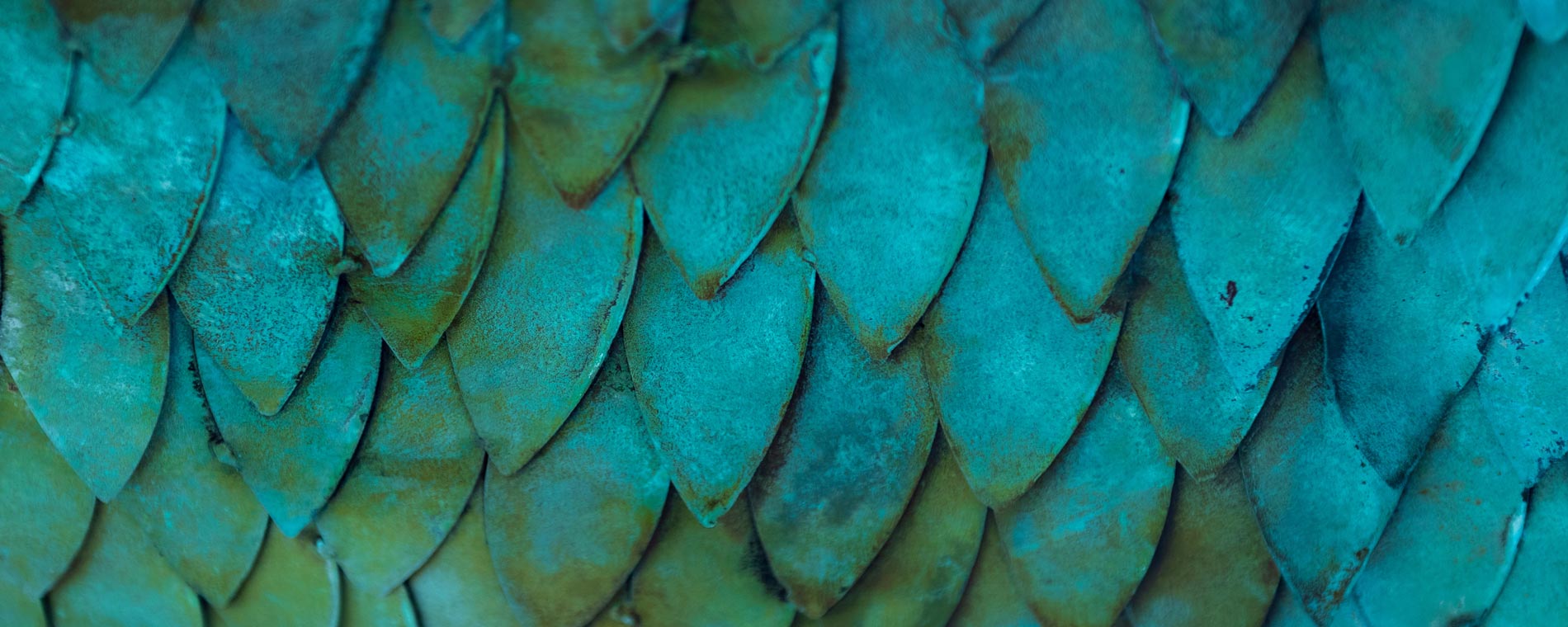UNCW researchers are helping organizations in South Africa and South America inspire the next generation of ocean conservationists.

Courtesy: I AM WATER Ocean Conservation
In the coastal town of Muizenberg, Cape Town, South Africa, a nonprofit organization named I AM WATER Ocean Conservation is making waves in environmental education with the help of a team of UNCW researchers.
I AM WATER connects youth in coastal communities to the marine ecosystem to promote understanding and protective behaviors for healthy oceans. Its goal is to foster ocean conservation by creating transformative experiences that inspire love and protection for marine life.
At the heart of their efforts is the Ocean Guardians Workshop (OGW), a two-day program that offers an immersive journey into ocean education to 11- to 13-year-olds from schools across Western Cape Town. Students participate in various activities, including ecosystem studies, snorkeling and community-driven service-learning projects. They travel to marine protected areas along the coast, engaging in field-based programs.
"These experiences provide real-world insights into ocean conservation and allow students to contribute to local environmental initiatives,” said Environmental Sciences Associate Professor Troy Frensley, who leads a team of UNCW researchers aiding I AM WATER in assessing the effectiveness of their work.
The collaboration between UNCW researchers and I AM WATER was established in 2021 after the organization’s staff read a paper published by Frensley and his colleagues. The organization reached out with questions and sought help evaluating their program. Environmental Science lecturer Hannah Bell ’22M, a graduate student at the time, assisted in developing the initial evaluation.
Since then, the partnership has expanded over two years, with the team now leading a comparative evaluation for the new Oceans for All Alliance, I AM WATER’s international learning community initiative focused on increasing ocean access and education for youth. The team is evaluating youth ocean education programs for 15 organizations across South Africa, Ecuador, the Galapagos Islands and Argentina. The team includes students Elizabeth Stratton ’25M, environmental sciences; Rainey Wallen ’25, a Spanish and international studies major; and Flora Ulrich, a pre-biology student.
“This collaboration has grown significantly since our first virtual meeting in 2021,” said Frensley. “Being part of OFAA allows us to engage with international partners and contribute to global environmental initiatives while advancing our research.”
Positive Impact
The evaluation results for the Ocean Guardians Workshop have been overwhelmingly positive, said Frensley. Across three surveys, the team measured over 10 outcomes, providing rich insights from the students. The evaluation tracked shifts in ocean learning, attitudes towards the ocean, ocean stewardship behaviors, connection to place, stress management, ocean literacy and more.
“Students reported greater knowledge about the ocean, more positive feelings towards it, a stronger desire to protect it and heightened motivation to engage in ocean-stewardship behaviors,” he said. “When we surveyed the students four months after the experience, they were already doing things to protect the ocean in their communities.”
Frensley added that open-response questions revealed heartfelt reflections from students, such as overcoming fears of the ocean and a newfound commitment to ocean conservation.
"The transformation is both heartening and inspiring, and it’s clear that the Ocean Guardians Workshop is not just educating; it’s changing lives,” said Frensley. “Our findings are not only in the short-term right after the program but also months later, suggesting that this experience has a longer-lasting impact on these students. This is extremely exciting, and longer-term evaluations like this are rare in literature.”
The research team’s work was funded by I AM WATER Ocean Conservation and Oceans Finance Company.
“We thank the I AM WATER staff, coaches, leadership team and donors who have supported these program evaluation efforts,” said Frensley. “The program evaluation would not have been successful without their cooperation and input.”
“The Environmental Science Department at UNCW is committed to helping others learn about the environment and building capacity to solve challenging problems,” he continued. “We are eager to continue our work with I AM WATER and the new Oceans for All Alliance and believe this work is making a difference in the lives of people around the world.”
This article has the following tags: Biology & Marine Biology Research & Innovation Engagement Environmental Sciences Honors College International Studies CSE - College of Science & Engineering CSE Research & Innovation myUNCW World Languages & Cultures CHSSA - College of Humanities, Social Sciences, & the Arts


